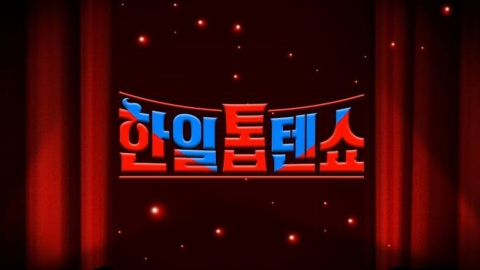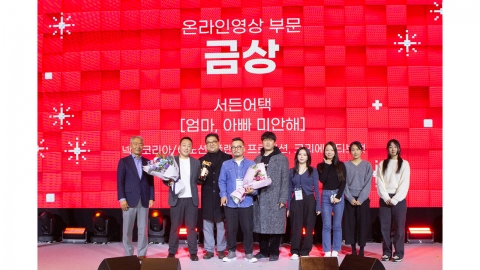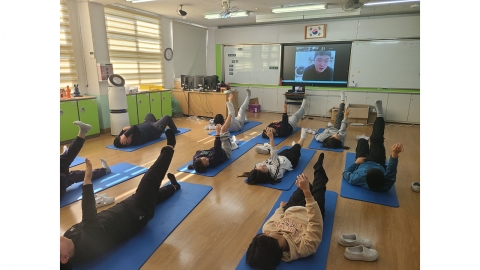■ Telephone connection: Shin Bong-ki, professor at Kyungpook National University School of Law
* The text below may differ from the actual broadcast content, so please check the broadcast for more accurate information. Please specify [YTN News Special] when quoting.
[Anchor]
The impeachment motion of President Yoon Suk Yeol, proposed by the six parties, will be voted on at the plenary session of the National Assembly as early as tomorrow. Let's take a closer look at the impact of the unprecedented declaration of emergency martial law with Shin Bong-ki, a professor of law at Kyungpook National University who served as a public affairs researcher at the Constitutional Court. You're connected, aren't you?
[New sewing machine]
Hello,
[Anchor]
Hello. The six opposition parties submitted an impeachment motion against President Yoon Suk Yeol to the National Assembly yesterday and even reported it to the plenary session. How will the vote be held after that?
[New sewing machine]
If an impeachment motion is originally proposed by the National Assembly, there are two ways after that. One is to report to the first National Assembly plenary session, and after reporting, if it is necessary to investigate the matter itself, we can refer it to the Judiciary Committee for an investigation, but the current situation does not seem to be progressing that way. It is known that it does not go through the Judiciary Committee's investigation and immediately reports to the plenary session of the National Assembly to begin the impeachment resolution immediately from then on. In other words, if you originally propose an impeachment motion, if you do not go through an investigation by the Judiciary Committee, you will vote on the impeachment within just one day, that is, after 24 hours, for two days, that is, within 72 hours. After that, wouldn't the impeachment be passed or rejected after that? If passed, the impeachment committee member will become the chairman of the Judiciary Committee. In the past, when former President Park Geun Hye was impeached, Rep. Kwon Sung-dong served as the chairman of the Judiciary Committee. Likewise, the impeachment resolution is delivered to the current chairman of the Judiciary Committee. It is also required to serve a copy to the Constitutional Court, the parties to the impeachment resolution, and the head of the affiliated agency. If that happens, the impeached person will be suspended from exercising his or her authority from then on.
[Anchor]
A closer look at the impeachment process would require at least eight votes from the power of the people to exceed two-thirds, assuming that all 192 opposition lawmakers in the 22nd National Assembly approve. Can it be said that having to exceed two-thirds is a rather strict standard?
[New sewing machine]
This is strictly stipulated only in the case of the president when it comes to voting for impeachment in Korea, and it is slightly eased in the case of general state councilors except for the president. With the proposal of one-third of the registered members and one-half of the approval, the general members of the State Council are required to vote for impeachment. In the case of the president, the majority of the motion is two-thirds, and the majority of the motion is approved. Therefore, since the president is in charge of state affairs and the head of the state, it seems that the strictness of the president reflects the purpose of the legislative or constitutional authority.
[Anchor]
Let's take a look at the reasons for filing an impeachment motion. The Democratic Party of Korea claims that the declaration of emergency martial law is unconstitutional and constitutes a constitutional rebellion. What can be interpreted as the requirement for the declaration of emergency martial law on the unconstitutional part and the failure to comply with this requirement?
[New sewing machine]
According to Article 77 of the Constitution, the president should meet this requirement of a state of war, an incident, or a similar state of emergency. First of all, a state of emergency is, for example, a continuous presidential impeachment, a budget, and such a legislative runaway. In this way, whether it is reasonable for the National Assembly to use the concept of a state of emergency as the reason for impeachment, such as legislative runaway and impeachment, especially in a situation where the opposition party leads the National Assembly and makes the administrative work of the government quite difficult. Or there may be this position that needs to be interpreted strictly. However, there are two regulations on national emergencies and emergencies in the Constitution in Articles 76 and 77. It can be seen that this regulation is a valid interpretation of the constitution that must be interpreted strictly. So what it means is that in interpreting the concept of war, speculation, or equivalent national emergency itself, we have to understand it like this: war, speculation, and then war, a national emergency. However, whether budget congestion or legislative congestion constitutes a national emergency equivalent to wartime or incident can be seen as an attempt that has already been flawed in the declaration of emergency martial law itself. Then, according to Article 77 of the Constitution, martial law can be declared when it is necessary to respond to military needs with troops, and then when it is necessary to maintain public well-being order, but in determining whether the current situation is so serious as a force, it may be pointed out whether it has met the requirements for declaring emergency martial law.
[Anchor]
I think the key is whether it was really a national emergency or how to view it. Professor, however, some point out that there was a defect in the martial law declaration process, so how should I look at this?
[New sewing machine]
The problem is also pointed out in the process of declaring martial law. For example, martial law explicitly stipulates that if an emergency martial law is declared in advance, it must be notified to the National Assembly without delay. However, if this goes into the question of whether it is unconstitutional, the constitutional provisions must notify the National Assembly in advance. According to Article 77 (4) of the Constitution, the president must notify the National Assembly without delay when declaring martial law, and this concept of no delay should be understood as a concept as quickly as possible. So right before the National Assembly Speaker Woo Won-sik put it to a vote at that time, he said that he had not yet been officially notified by the government or the president. Considering that, there may be procedural flaws in this area, but if I look at the process that led to a vote later, I think that the procedure notified to the National Assembly afterwards has been supplemented even if it is a little late. Specifically, I cannot clearly confirm how this document was exchanged and notified between the President, the Speaker of the National Assembly, and the National Assembly in the process.If it has continued to the vote, it is vaguely presumed that this has already been supplemented even after the process.
[Anchor]
I'll ask you a question about the crime of rebellion, but I mobilized the military to the National Assembly. We've entered the precinct. This part is very illegal. What do you think?
[New sewing machine]
As you know well, according to Article 77 of the Constitution, power itself is also stipulated in Article 77 (3) of the Constitution. If an emergency decree is declared, special measures can be taken against the authority of the government or the court. So, whether it's emergency martial law or security martial law, the Constitution doesn't have the power to do anything special about this to the National Assembly. However, as you just asked, not only did you prevent the National Assembly from entering the entrance, but the process of entering the main building of the National Assembly is a bit excessive.
[Anchor]
If martial law is declared, the issue will be that only judicial and administrative powers can be controlled and legislative powers cannot be controlled. Among the crimes of rebellion, please explain the act of national constitution.
[New sewing machine]
I'm not a criminal law scholar, so I may not be able to talk about it in detail.According to the Korean Criminal Law, a person who rioted for the purpose of excluding state power from all or part of the territory of the Republic of Korea as a requirement for the establishment of a rebellion crime and disrupting the national constitution. This is the main culprit of rebellion and meets the constituent requirements. The crime of rebellion is established only when the interpretation of the part of whether the national constitution was done for the purpose of the constitution and whether it caused a riot, even if there is a purpose. However, in the concept of the national constitution itself, the act of extinguishing the function of the constitution or law without constitutional or legal procedures, and the impossibility of conquering or exercising its power under the constitution by coercion, is explicitly defined in our criminal law as the concept of the national constitution. However, when it comes to entering the National Assembly this time, it is either blocking it or pushing it forcibly, or breaking the window. The interpretation of whether this part has reached the point where it is impossible to exercise power by coercion against related state agencies due to national constitutional controversy will be controversial if there is a controversy over rebellion. It's going to be a hot topic. In addition to that, it is necessary to have a riot requirement to be a target criminal who should have the purpose of disrupting the national constitution as a requirement for the establishment of the crime of rebellion. Did you really meet the riot requirements required by the crime of rebellion? in relative peace In terms of whether martial law troops were deployed, but meeting the riot requirements, if you look at the situation at the National Assembly at the time, I think it has not reached that point. Therefore, when it comes to the establishment of the crime of rebellion, many people argue that it should be impeached because it is a crime of rebellion, but I think it is still difficult to agree on that.
[Anchor]
You pointed out the riot requirements. Many point out that this is unconstitutional even for the part of the decree issued at the time of martial law. First of all, the content of decree No. 1 prohibits all political activities such as political party activities, political associations, and assembly protests of the National Assembly and local councils. Is there any unconstitutionality in this part?
[New sewing machine]
In this regard, I pointed out right away when I was interviewed by YTN on the very first day, but I immediately pointed out the unconstitutionality of the part that prohibits all political activities such as the activities of the National Assembly and the activities of political parties. I told you the reason earlier.Ma cannot be considered a state of emergency equivalent to wartime, incident or wartime, incident in Article 77 (1) of our Constitution, and the fact that special measures can be taken only against the judiciary and the administration except for the legislature, which is Article 77 (3) of our Constitution, shows that the content of the decree is excessively stipulated in this regard. So there's a controversy, especially about the other two, three, four, and even the medical profession that includes the major.E No. 1 is considered to be quite unconstitutional. At least separately, I'm telling you that whether the act of declaring emergency martial law itself is unconstitutional needs to be approached from a separate perspective, regardless of whether the martial law commander and the martial law history contain unconstitutional content.
[Anchor]
You've even pointed out the parts that are open to interpretation. There is also an opinion that it is insufficient to apply the crime of rebellion, given that martial law soldiers did not completely block the National Assembly's mind. What do you think?
[New sewing machine]
That's what I told you earlier about in a national emergency, whether it's done by military necessity as a force or by declaring martial law out of necessity to maintain public well-being order. In fact, in the field, even when martial law troops return later, they greet the people, and when I saw them go like this, I also thought that the intention of the rebellion crime and the active will of the rebellion crime in the target crime were insufficient.
[Anchor]
Anyway, you sent martial law troops to the National Assembly and there was no conflict? Some people are talking about attempted civil war in that they blocked entry and then forcibly attempted to lose the function of the constitutional institution anyway. What do you think of this?
[New sewing machine]
So, as you said earlier, the crime of attempted rebellion must be established to establish the crime of attempted rebellion. Is it really a crime of rebellion? In other words, was there an act of rioting that required the intention of a purpose and was mobilized for the accompanying purpose? In this way, since the riot was not accompanied now, the act of civil war itself was not done, so it can be seen passively in terms of whether the attempted crime of civil war can be established.
[Anchor]
The other part that is mentioned again is the crime of abuse of authority. Is this part applicable?
[New sewing machine]
I think there may be room for abuse of authority. In the case of former President Park Geun Hye last time, I remember the abuse of authority was controversial, but I think it was controversial that I don't remember exactly. The interpretation of abuse of authority is called abuse of authority as a president, and there can certainly be controversy over abuse of authority in this part as well. If so, doesn't President Yoon say that it is a so-called constitutional emergency right in Articles 76 and 77 with the authority to protect our Constitution given to the President? Article 76 was an emergency measure in the past under former President Park Chung-hee, and then under President Chun Doo-hwan, the name was changed to emergency measures, and emergency measures were ordered measures that took effect. In the 88th Constitution of the current Constitution, this was called emergency measures and emergency measures in the past, which weakened the president's emergency powers. So we're weakening it with this name called the President's Emergency Financial Economic Order. The same goes for the requirements of the act. Likewise, as we know in Article 77, we have these regulations on emergency martial law, security martial law. So what I want to answer is that there may be some room for the president to decide whether it meets the requirement to declare emergency martial law as an emergency power, but the president has decided on his own that the current situation is within the scope of the president's authority to issue an emergency financial and economic order or declare an emergency martial law or a security martial law. Since he has the authority to exercise such emergency powers, he has the authority as president, but as I said earlier, whether his authority has been abused, he declares an emergency decree on wartime events and national emergencies equivalent to wartime events. In this regard, whether or not the concept of a national emergency has been extended and whether or not it has been abused could be controversial.
[Anchor]
In the end, it is necessary to interpret whether the requirements, authority, and authority have been abused. The fifth part of the decree said that if all medical personnel who leave the medical field do not return, they will be punished in accordance with martial law. Is there no controversy about the part about a particular job, the part called punishment?
[New sewing machine]
I also thought that I might have used too much of a violent expression for that part. As you know well, in particular, it is an area where residents are the most sensitive in the issue of legislative conflict and the Korean people are suffering the most. Then, I think one of the most decisive reasons for defeating the president's approval rating and dampening hopes for a rebound is actually one of the reasons for not properly solving the problem of legislative conflict, and even the judgment on this seems to be targeted at a specific job, that is, a doctor. And it is punished by martial law. As for this expression, I was really upset as I watched this part, saying, "Should I have used this expression this time in the issue of the ruling-opposition-government consultative body?" Why did he use such strong expressions? As such, I thought that Yongsan and the president's dissatisfaction with the issue of legislative conflict, which has the most negative impact on President Yoon's rebound in approval ratings, were reflected in this.
[Anchor]
In addition to the legal justification interpretation and controversy over the declaration of martial law, what do you think about the criticism that the perception of the president who declared martial law itself is anachronistic?
[New sewing machine]
As you know, the emergency martial law was already in college, and it was about 44 years since the Chun Doo-hwan administration declared the emergency martial law on December 12, 1979 and May 18, 1980. The concept of emergency martial law has been only discussed in our constitution and in our constitutional textbooks. At this point, the fact that the emergency martial law has been declared in the Republic of Korea, which is now the world's 10th largest economy and the world's attention to the Republic of Korea, is, of course, the six-hour world.The fact that the emergency martial law was issued at this point in time is quite shocking. And I sympathize a lot with the fact that the president's perception itself is anachronistic in that regard. As a prosecutor, the president also studied the judicial examination, and if you think about whether the emergency martial law and impeachment still had a considerable place in his mind, emergency martial law is the establishment of the basic order of liberal democracy in Korea today, the basic rights of the people are guaranteed more than any other country in the world, and even the world's most advanced countries in terms of individual basic rights and legislation, and the Constitutional Court has already introduced the most leading constitutional court, which judges whether the state's unconstitutional acts are unconstitutional. It was quite shocking to try something called emergency martial law when it was already 30 years old.
[Anchor]
He expressed his view that it was shocking. If the impeachment motion is passed by the National Assembly and passed to the Constitutional Court, a conclusion must be made there, but the Constitutional Court is now a six-member system. There are six judges in a capacity of nine, and this can be a variable. What do you think?
[New sewing machine]
Fortunately, due to the issue of President Lee Jin-sook, the Constitutional Court on its own temporarily cited a provisional injunction to suspend the validity of the Constitutional Court's own law, or the Constitutional Court's law, which calls for a trial hearing as seven or more people. In doing so, according to the proviso to Article 23 (2) of the Constitutional Court Act, which can be called a weighted citation requirement as well as the case of Lee Jin-sook under the six-member system, more than six people must approve of the law when actively deciding on unconstitutionality, citing impeachment, dissolving a political party, or citing a constitutional petition. Therefore, since it is currently a six-member system, there is no room for the impeachment decision to be cited unless everyone makes a consensus judgment. However, I think there are about two problems. Fortunately, the three constitutional judges recommended by the National Assembly, one ruling party, one opposition party, and one by the ruling and opposition parties' agreement, gave up one to the Democratic Party of Korea in terms of recommending constitutional judges by agreement between the ruling and opposition parties, and the Democratic Party recommended two. So I think it's a positive relief that the active will in the National Assembly to normalize the Constitutional Court in a forward-looking manner, even if it's late, has dragged on so far that the active will to make the Constitutional Court a nine-member court is now well coordinated. Then, the current six-member system of the Constitutional Court is called the impeachment of President Lee Jin-sook because of the case of the impeachment of President Lee Jin-sook. Didn't you cite the provisional disposition of suspension of effect so that you can temporarily perform the judging work of the Constitutional Court with six members? This means that after Lee Jin-sook's impeachment case is over, she becomes a quorum of judges with more than seven members. Therefore, the Constitutional Court must be formed quickly in the part of the National Assembly's recommendation of three people. It has to meet a nine-member court. Still, it's a smooth delay, but I'd like to say that it's fortunate that it's going well in that form even now.
[Anchor]
Let's see the results of the vote first. So far, I've been with Shin Bong-ki, a law school professor. Thank you, professor.
※ 'Your report becomes news'
[Kakao Talk] YTN Search and Add Channel
[Phone] 02-398-8585
[Mail] social@ytn. co. kr
[Copyright holder (c) YTN Unauthorized reproduction, redistribution and use of AI data prohibited]
Politics
More- "Emergency martial law" suggestion...Who is Kim Yonghyun? [Anchor Report]
- [On-site video +] "The Board of Audit and Inspection passed the impeachment bill...188 out of 192 people approve."
- Vice Defense Minister Kim Sun-ho said, "Former Minister Kim Yong-hyun ordered martial law troops to the National Assembly."
- Former martial law commander Park An-soo said, "I learned from the declaration of martial law and the announcement of the president."
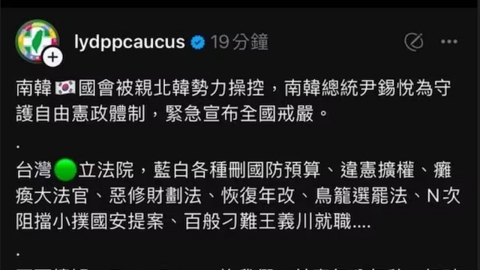
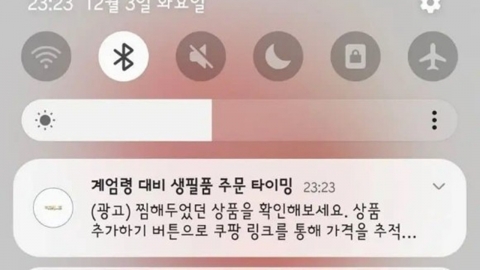
![National power shaking over 'President Yoon's defection'...Chin-yoon vs. "Witness" in close conflict. [Y transcript]](https://image.ytn.co.kr/general/jpg/2024/1205/202412051014331620_h.jpg)
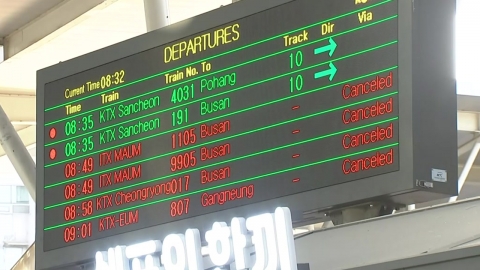
![[On site Y] Producer Jang Siwon of "The Greatest Rugby" "A cast member of the sexual assault controversy? Of course, it's edited.](https://image.ytn.co.kr/general/jpg/2024/1205/202412051250252611_h.jpg)
![[Site Y] "105 microphones, 140 cameras"..."The Greatest Rugby" (Roundup) that can't be more realistic than this.](https://image.ytn.co.kr/general/jpg/2024/1205/202412051234289175_h.jpg)
